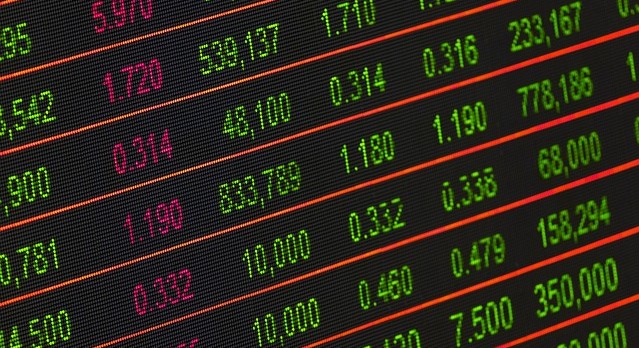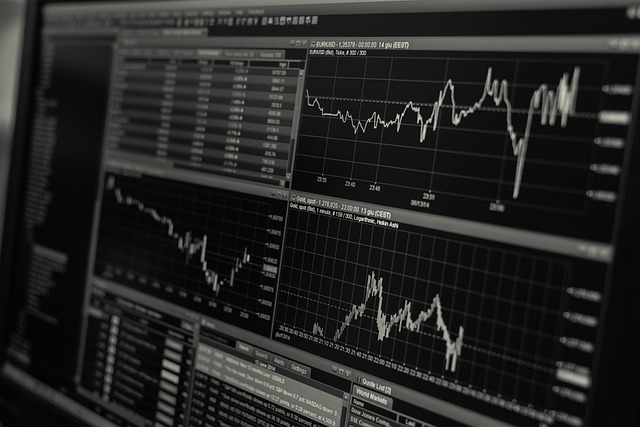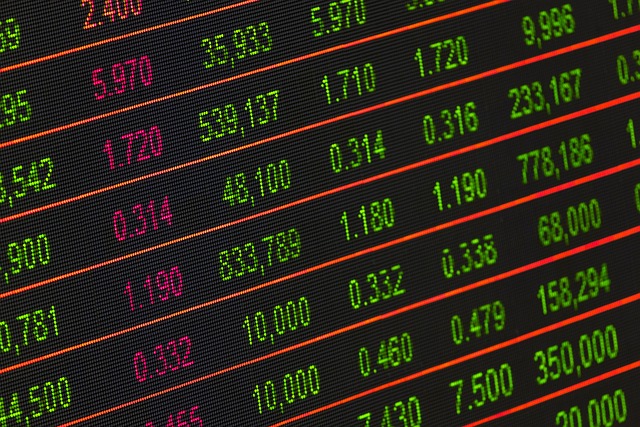
Have you ever wondered what risks are involved when it comes to trading? Well, let me tell you, there are quite a few! Trading, whether it be stocks, forex, or cryptocurrencies, always comes with a certain level of risk. And as the saying goes, no risk, no reward, right? But it’s important to understand these risks before diving headfirst into the world of trading.
When it comes to trading, one of the biggest risks is market volatility. Prices can fluctuate rapidly, and if you’re not careful, you could end up losing a significant amount of money. Another risk is leverage. While it can magnify your gains, it can also magnify your losses. It’s like a double-edged sword – it can be great when things are going well, but it can also be devastating when the market moves against you.
Another risk that traders face is liquidity risk. Basically, it means that the market you’re trading in may not have enough buyers or sellers to execute your trades smoothly. This can lead to slippage, where you end up buying or selling at a different price than what you intended. And of course, there’s always the risk of scams and fraud in the trading world. There are countless stories of people falling victim to fraudulent schemes or shady brokers.
These are just a few of the risks associated with trading, and there are many more to be aware of. If you’re interested in learning more about how to manage these risks and become a successful trader, be sure to check out our article. We’ll delve deeper into each risk and provide you with valuable tips and strategies to navigate the trading world safely. So stay tuned, and happy trading! Trading in financial markets can be an exciting and potentially lucrative endeavor, but it is not without its risks. Understanding and managing these risks is crucial to your success as a trader. In this article, we will explore the various risks associated with trading and discuss strategies to mitigate them.

Market Risks
Price Volatility
One of the primary risks in trading is price volatility. Financial markets are constantly influenced by various factors, such as economic indicators, geopolitical events, and investor sentiment. These factors can cause prices to fluctuate rapidly and unpredictably. As a trader, you must be prepared for sudden price movements, as they can result in significant gains or losses.
Liquidity Risk
Liquidity risk refers to the possibility that you may not be able to buy or sell an asset quickly at a reasonable price. This can occur in markets with low trading volumes or during times of financial stress. Illiquid markets can make it difficult to exit positions or may result in larger bid-ask spreads, leading to higher transaction costs.
Market Manipulation
Market manipulation is a risk that occurs when individuals or entities engage in fraudulent activities to distort market prices. This can include actions such as spreading false information, manipulative trading strategies, or insider trading. Market manipulation can cause prices to deviate from their true value, leading to unfair advantages for certain traders and potential losses for others.
Credit Risks
Counterparty Risk
Counterparty risk arises from the possibility that the other party in a trade may default on their obligations. This risk is especially relevant in over-the-counter derivatives markets, where trades are conducted directly between two parties. A default by a counterparty can result in significant losses, as well as legal and operational complications.
Default Risk
Default risk refers to the possibility that a borrower will fail to make timely payments on their debt obligations. This risk is particularly relevant when trading on margin or using leverage. If a borrower defaults, you may face losses on your investments or be required to liquidate your positions to cover the debt.
Credit Rating Downgrades
Credit rating agencies assess the creditworthiness of individuals, companies, and governments. A downgrade in credit rating can lead to increased borrowing costs or even a loss of confidence in the market. As a trader, you should be aware of potential credit rating downgrades and their potential impact on your investments.

Operational Risks
Technological Failures
Technological failures, such as system crashes or network outages, can disrupt your ability to trade. These failures can result in missed opportunities, incorrect trade executions, or financial losses. It is important to have robust backup systems and contingency plans in place to mitigate the impact of technological failures.
Cybersecurity Attacks
In today’s interconnected world, cybersecurity attacks pose a significant threat to traders. Cybercriminals can gain unauthorized access to trading platforms, steal sensitive information, or disrupt trading operations. Implementing robust cybersecurity measures and staying vigilant against potential threats is crucial to protect your investments and personal information.
Errors and Omissions
Human errors and omissions can occur at any stage of the trading process, from order entry to trade execution. These mistakes can lead to financial losses or regulatory penalties. Establishing systematic procedures, implementing risk management controls, and maintaining accurate records can help mitigate the risk of errors and omissions.
Regulatory Risks
Changes in Regulations
Regulatory changes can have a significant impact on financial markets and trading activities. New regulations may impose additional compliance requirements, restrict certain trading strategies, or modify market structures. As a trader, you must stay informed about regulatory developments and adapt your trading strategies accordingly.
Legal and Compliance Issues
Failure to comply with relevant laws and regulations can result in legal and reputational risks. Trading activities are subject to various rules and regulations, including anti-money laundering laws, insider trading restrictions, and market manipulation prohibitions. It is essential to have a solid understanding of the applicable legal and compliance requirements and to adhere to them strictly.
Government Intervention
Government intervention in financial markets can introduce additional risks for traders. Actions such as interest rate changes, capital controls, or monetary policy decisions can have a profound impact on market prices. Political uncertainty and geopolitical events can also create volatility and increase the risk of trading.

Systemic Risks
Financial Crises
Financial crises are events characterized by significant disruptions in financial markets and the broader economy. They can result from factors such as excessive speculation, credit booms, or asset bubbles. Financial crises can lead to severe price declines, liquidity shortages, and increased counterparty risks.
Contagion
Contagion refers to the spread of financial disruptions from one market or sector to others. During times of crisis, rapidly declining prices and heightened uncertainties can lead to a contagion effect, where problems in one market spill over into others. Contagion can exacerbate market volatility and increase the risk of losses across different asset classes.
Interconnectedness of Markets
Financial markets are increasingly interconnected, and events in one market can have ripple effects on others. Risks in one asset class or region can quickly spread to other markets, as investors adjust their portfolios and react to changing conditions. The interconnectedness of markets can amplify the impact of market shocks and increase the risk of losses.
Leverage Risks
Margin Calls
When trading on margin, you borrow money to finance your trades. Margin calls occur when the value of your investments falls below a certain threshold, and you are required to deposit additional funds to maintain your positions. Failure to meet margin calls can result in the forced liquidation of your positions, potentially leading to significant losses.
Debt Burden
Excessive borrowing and high levels of debt can increase the risk of financial distress. Taking on too much debt to finance trading activities can leave you vulnerable to adverse market conditions or unexpected losses. Careful risk management, including setting appropriate leverage limits and monitoring debt levels, is essential to avoid excessive debt burdens.
Excessive Risk-taking
Trading involves taking risks, but excessive risk-taking can lead to severe losses. Overconfidence, greed, or the desire to recoup previous losses can drive traders to take on more risks than they can handle. It is important to establish a disciplined trading plan, set risk limits, and avoid making impulsive decisions based on emotions.

Information Risks
Insider Trading
Insider trading occurs when individuals trade based on non-public information, giving them an unfair advantage over other market participants. Engaging in insider trading is illegal and can lead to significant financial penalties and reputational damage. It is essential to trade on publicly available information and adhere to insider trading regulations.
Market Manipulation Through False Information
Manipulating markets by spreading false information can distort prices and mislead other traders. False rumors, misleading statements, or fraudulent reports can create artificial price movements. Traders should be cautious about relying on unverified information and ensure they conduct thorough research before making investment decisions.
Lack of Transparency
Lack of transparency in markets can impede accurate price discovery and increase the risk of trading. Opacity in market structures, limited access to information, or inadequate disclosure practices can create inefficiencies and pose challenges for traders. It is important to understand the level of transparency in the markets you trade and adapt your strategies accordingly.
Psychological Risks
Emotional Decision-making
Emotions can significantly influence trading decisions. Fear, greed, or anxiety can lead to impulsive actions and irrational decision-making. It is important to cultivate emotional discipline, stick to your trading plan, and make decisions based on careful analysis and rational thinking.
Fear and Greed
Fear and greed are powerful emotions that can drive market participants to make irrational decisions. Fear of missing out on potential gains or fear of losses can lead to impulsive trading or chasing trends. Similarly, greed can result in excessive risk-taking or holding on to losing positions. Recognizing the influence of fear and greed and managing these emotions is essential for successful trading.
Overconfidence Bias
Overconfidence bias occurs when traders overestimate their abilities and underestimate the risks involved. This bias can lead to overtrading, neglecting risk management, or failing to adapt to changing market conditions. Maintaining humility, seeking feedback, and continuously learning from past experiences can help mitigate the risk of overconfidence bias.

Platform Risks
Technical Glitches
Trading platforms are susceptible to technical glitches, such as software bugs or connectivity issues. These glitches can disrupt order execution, result in incorrect trade fills, or cause delays in accessing real-time market data. It is important to choose reliable trading platforms and stay informed about any known issues or updates.
Trading System Outages
Trading system outages can occur due to various reasons, such as hardware failures, software malfunctions, or network disruptions. These outages can prevent traders from executing or managing their positions, potentially resulting in missed opportunities or financial losses. Having backup systems, contingency plans, and alternative means of accessing markets can help mitigate the impact of system outages.
Data Security Breaches
Data security breaches can lead to unauthorized access to sensitive information, including personal details, trading account credentials, or financial data. Cybercriminals can use this information for identity theft, fraud, or unauthorized trading activities. Implementing strong security measures, such as using secure passwords and encrypting sensitive data, is essential to protect against data security breaches.
Conclusion
Trading in financial markets offers opportunities for profit, but it is not without its risks. Understanding the various risks associated with trading is crucial for successful and sustainable trading. By being aware of and proactively managing these risks, you can increase your chances of achieving your trading goals and minimizing potential losses. Remember to stay informed, be disciplined, and adapt your strategies to changing market conditions.



